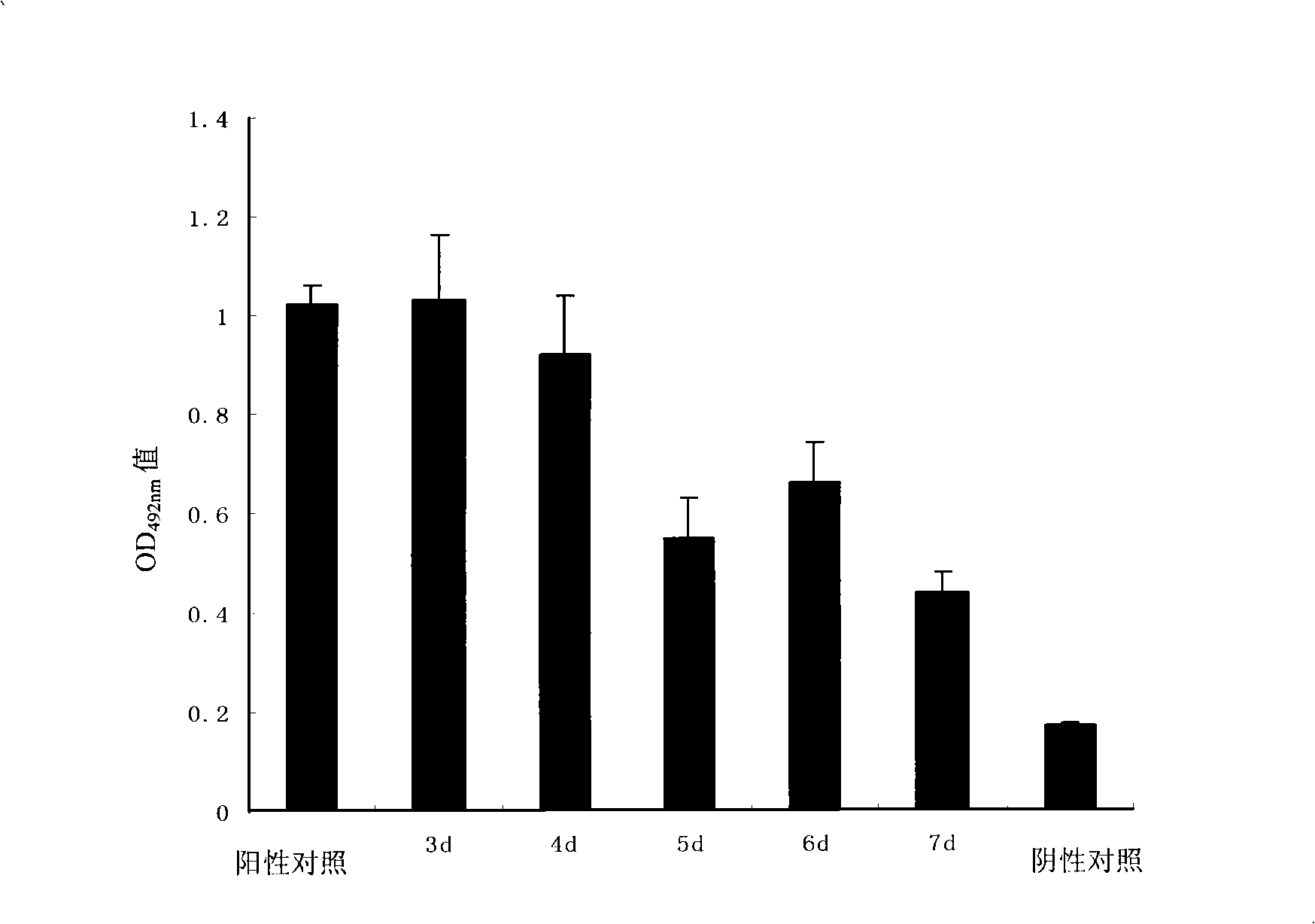Method for constructing chicken model for transgenosis and production exogenous protein
An exogenous protein and transgenic technology, applied in recombinant DNA technology, animal husbandry, etc., can solve the problems of transient expression of transgenic protein, inflammatory response, etc., and achieve high efficiency, low introduction dose, and good repeatability.
- Summary
- Abstract
- Description
- Claims
- Application Information
AI Technical Summary
Problems solved by technology
Method used
Image
Examples
Embodiment 1
[0018] Example 1. Introduction of exogenous protein-bovine serum albumin (BSA) to eggs of different embryonic ages
[0019] Take 30 white Laihang chicken eggs (purchased from China Agricultural University Breeder Farm) with embryo ages of 3, 4, 5, 6 and 7 days respectively. The egg determines the position of the embryo, and then uses a pencil to mark the edge of the air chamber on the eggshell on the opposite side of the embryo, so that the embryonic vascular network can be effectively avoided when punching, and the mechanical effect of the embryonic blood vessels when introducing foreign proteins can be avoided. damage. Make a punch mark 0.3-0.5cm below the marked edge of the air chamber. In order to maintain the air pressure balance between the air chamber and the embryo chamber, make another punch mark on the top of the air chamber, wipe the punch mark with alcohol cotton, and use The dissecting needle quickly pierced two small holes (1mm in diameter) at the egg punch mark...
Embodiment 2
[0023] Example 2. Detection of immune tolerance results of transgenic model chickens inoculated with bovine serum albumin at different embryonic ages by ELISA
[0024] After bovine serum albumin was emulsified with Freund's adjuvant (Freund's complete adjuvant was used for antigen emulsification during the first immunization, and Freund's incomplete adjuvant was used for antigen emulsification at other age stages), it was obtained in Example 1 above. On the 20th, 30th, 40th and 50th days after hatching, transgenic model chickens inoculated with bovine serum albumin of different embryo ages were treated with 100 μl of bovine serum albumin solution with a concentration of 1 g / L for 4 days. After the first subcutaneous injection, on the 7th day after the fourth subcutaneous injection, the serum of the transgenic model chickens was taken for ELISA detection. At the same time, the chicken serum from untreated chicks in the embryonic stage after being immunized four times at the abo...
PUM
 Login to View More
Login to View More Abstract
Description
Claims
Application Information
 Login to View More
Login to View More - R&D
- Intellectual Property
- Life Sciences
- Materials
- Tech Scout
- Unparalleled Data Quality
- Higher Quality Content
- 60% Fewer Hallucinations
Browse by: Latest US Patents, China's latest patents, Technical Efficacy Thesaurus, Application Domain, Technology Topic, Popular Technical Reports.
© 2025 PatSnap. All rights reserved.Legal|Privacy policy|Modern Slavery Act Transparency Statement|Sitemap|About US| Contact US: help@patsnap.com

